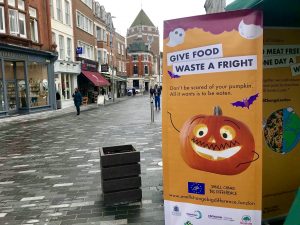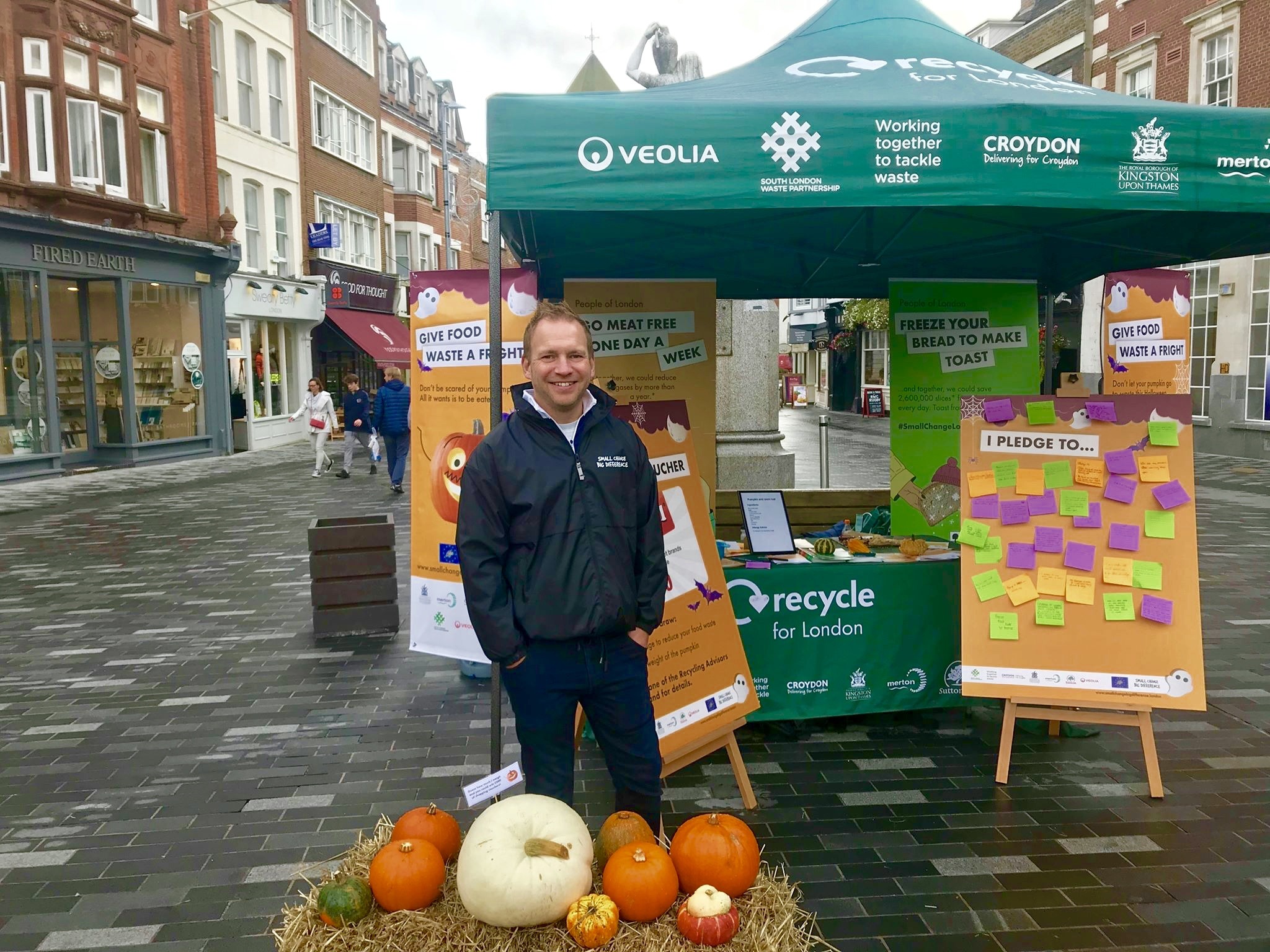
The average British family throws away the equivalent of £70 worth of food per month, according to a London-based environment specialist.
John Haynes, communications advisor for anti-waste group South London Waste Partnership, made the statement in light of an initiative to reduce food waste across South London this autumn.
He said: “The average family in this country wastes about £70 worth of food every month and at a time when budgets are tight for people it seems crazy that people are throwing that food in the bin.”
On Thursday, an event was held in Kingston Market Place by London food campaign group Small Change Big Difference to ‘Give Food Waste a Fright’.
The event, supported by South London Waste Partnership, showed locals how to make the most of their Halloween pumpkins this year by offering free pumpkin-based food samples and recipe ideas.

The campaign forms part of a wider initiative to get Londoners to reduce their food waste.
Other recommendations for reducing food waste included food recycling and meal-planning.
Haynes said that such skills were once commonplace amongst older generations but “seem to have been lost” by 2019.
He also said that nowadays, due to the low cost of certain foods that are “almost too cheap”, people are less conscious about food preservation and throw away large amounts.
South London resident Kathryn McKimmie said: “We throw so much out, it’s ridiculous.”
She said that to reduce her food waste levels, she tries to buy the exact amount of food she needs to eat rather than buying in bulk.

Kingston shopper and mother of two Anne Young said that she believes reducing food waste is an important matter.
“Do not buy more than you think you are going to eat,” she said.
Anne also said that she finds it difficult as a working mother to plan a weekly food shop but recommended buying fruit and vegetables from companies that sell that misshapen produce that major supermarkets dispose of.
Dave Etheridge, 30, from Surbiton agreed that it can be challenging to reduce food waste.
He said: “Things are often cheaper in large packages so if you aren’t eating it all it’s very easy to waste food.”
When asked whose responsibility it is to reduce food waste, Etheridge said: “I definitely think CEOs should be more accountable for their actions.”
Haynes said that the responsibility is “really a collective effort”.
“There’s not enough food to go round the world and yet there are parts of the world that are wasting it which seems crazy,” he said.
“It’s good for the environment to only produce what we need to produce and we should also be recycling any unavoidable food waste and not disposing of it in landfill.”
For more information on reducing food waste in Kingston Upon Thames, visit:





